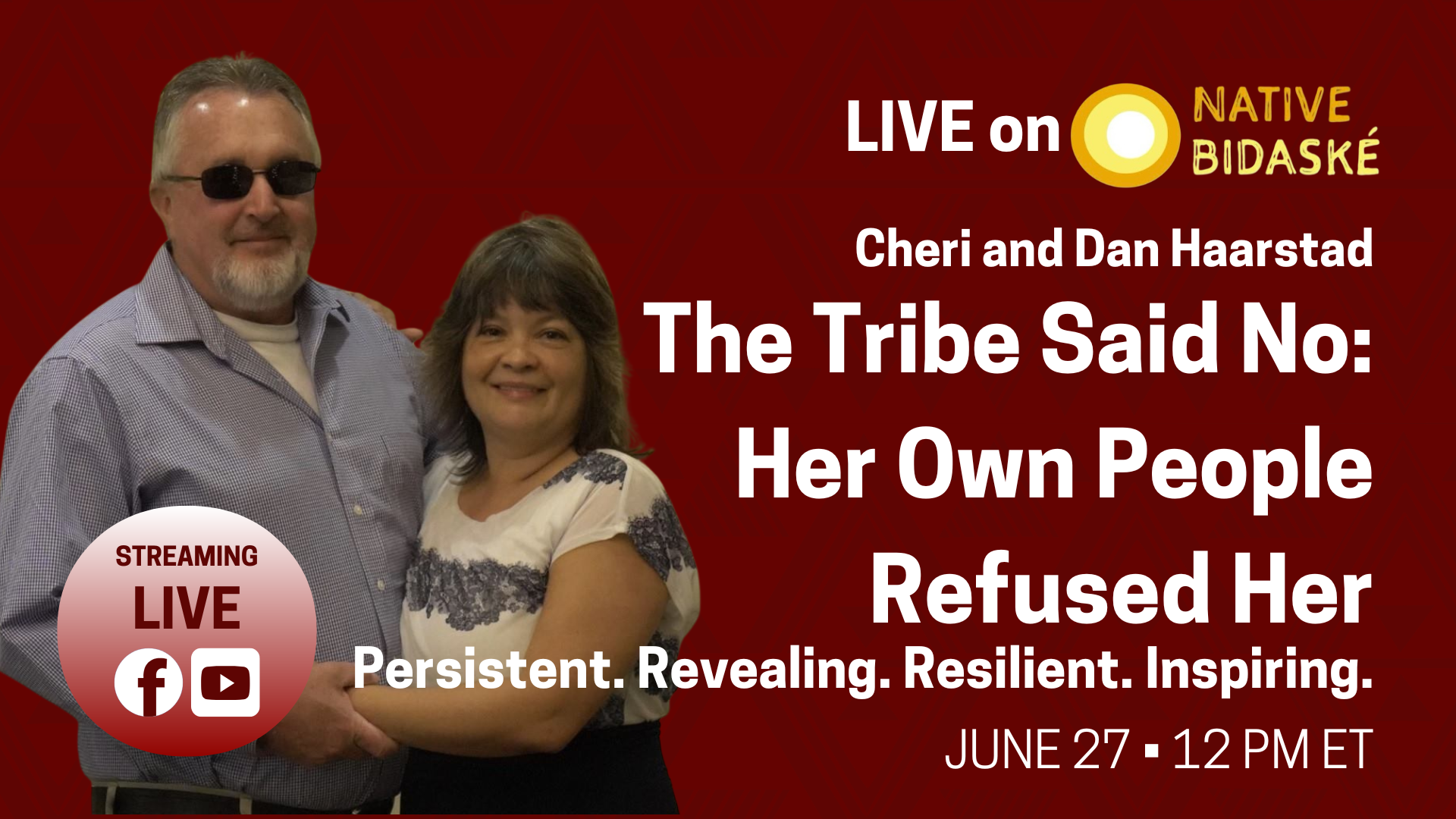
- Details
- By Native StoryLab
Some stories hurt before they even begin. Cheri Haarstad discovers she descends from an Alaska Native chief. She's done the research, with help from her husband. Found the village. Traced her bloodline back to Chief Theodore Baristop.
And still, her tribe refuses to enroll her. Why? Because boarding school silence and a 50-year-old federal policy stand between Cheri and her birthright. "I just want to go home… to meet my people… see my land. But they don't want me," she said.
Her husband Dan uses words like “extermination” and “erasure” — and he doesn’t use them lightly. Because to him, that's what this system is doing: cutting Native people off from their own identity through a mix of colonial policy and tribal silence. Across Indian Country, people are raising alarms about blood quantum, enrollment rolls, and a creeping fear that some tribes might simply disappear—not from disease or displacement this time, but from bureaucratic math.
Watch the full conversation between our host, Levi Rickert, and the Haarstads on Native Bidaské this Friday.
TUNE IN:
Date: Friday, June 27th
Time: 12:00 pm ET / 11:00 am CT / 10:00 am MT / 9:00 am PT
Streaming on Facebook, YouTube and our website.
Help us defend tribal sovereignty.
At Native News Online, our mission is rooted in telling the stories that strengthen sovereignty and uplift Indigenous voices — not just at year’s end, but every single day.
Because of your generosity last year, we were able to keep our reporters on the ground in tribal communities, at national gatherings and in the halls of Congress — covering the issues that matter most to Indian Country: sovereignty, culture, education, health and economic opportunity.
That support sustained us through a tough year in 2025. Now, as we look to the year ahead, we need your help right now to ensure warrior journalism remains strong — reporting that defends tribal sovereignty, amplifies Native truth, and holds power accountable.
 The stakes couldn't be higher. Your support keeps Native voices heard, Native stories told and Native sovereignty defended.
The stakes couldn't be higher. Your support keeps Native voices heard, Native stories told and Native sovereignty defended.
Stand with Warrior Journalism today.
Levi Rickert (Potawatomi), Editor & Publisher
